
Bengt Jönsson (Oxenstierna), (1390s–1450s) Swedish statesman and noble. Under the Kalmar Union, he served as co-regent of Sweden, from January to June 1448, together with his brother Nils Jönsson (Oxenstierna). Member of the Privy Council of Sweden from 1435, and magistrate of Uppland in 1439. Dubbed as knight by King Christopher of Bavaria following his coronation in 1441, and Master of the Royal Court from the same year.

Baron Gabriel Gustafsson Oxenstierna was a Swedish statesman.

The Oxenstierna family is a Swedish noble family, originally from Småland in southern Sweden, and is part of the Swedish uradel, the ancient nobility.

The House of Nobility in Stockholm, Sweden, is a corporation and a building that maintains records and acts as an interest group on behalf of the Swedish nobility.
Jean de la Vallée was a Swedish architect.
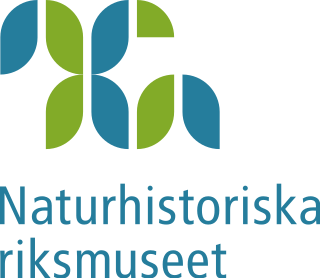
The Swedish Museum of Natural History, in Stockholm, is one of two major museums of natural history in Sweden, the other one being located in Gothenburg.

Catherine of Sweden was a Swedish princess and a Countess Palatine of Zweibrücken as the consort of her second cousin John Casimir of Palatinate-Zweibrücken. She is known as the periodical foster-mother of Queen Christina of Sweden and the mother of Charles X of Sweden.
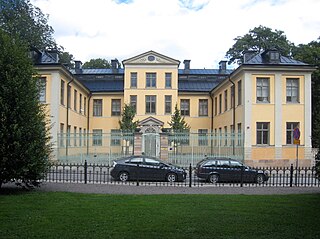
The Scheffler Palace is a mansion located at Drottninggatan 116 in Stockholm, Sweden.

Rosersberg Palace is one of the Royal Palaces of Sweden. Situated on the shores of Lake Mälaren, on the outskirts of Stockholm, it was built in the 1630s by the Oxenstierna family and became a royal palace in 1762, when the state gave it to Duke Karl, the younger brother of Gustav III of Sweden.

Högvaktsterrassen is a street in Gamla stan, the old town in central Stockholm, Sweden passing west of Yttre Borgården, the outer court of the Stockholm Palace.
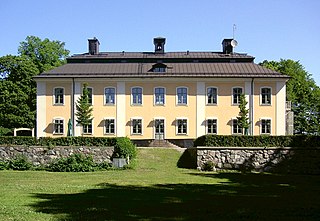
Åkeshov Palace is located in Bromma, a borough of Stockholm, Sweden. It is lokated in the Judarskogen nature reserve. Historically, Åkeshov was situated in Bromma socken, which was incorporated with the City of Stockholm in 1916. After having undergone a careful reconstruction, the palace is used today as a hotel and conference facility.

Hässelby Palace is a former manor located in Hässelby gård in the west part of Stockholm Municipality, Sweden. Since 2010 it has frequently been available for weddings, parties and conferences.

Mariedal Castle is a manor house in Götene Municipality, Västergötland, Sweden.
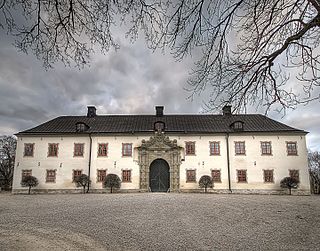
Tidö Castle is a castle located 17 km south of Västerås in Västmanland, Sweden.

Venngarn Castle is a castle in Sweden. It is located north of the town of Sigtuna in Uppland.

The Thiel Gallery is an art museum in the Djurgården park area of Stockholm, Sweden. Represented are the members of the Artists Association (Konstnärsförbundet) from the early 1900s as well as one of the world's largest collections of works by Edvard Munch.

Mathias Spihler was a Swedish architect and master builder of German descent.

Simon de la Vallée (1590–1642) was a French-Swedish architect. The first architect in Sweden to have received formal academic training, he created the Swedish school of architecture.
Jean Baptiste Dieussart, also Jean Baptista Dusart was a Flemish sculptor who worked in the Dutch Republic and mainly in Sweden. He mainly created lead statues of which only a few have survived to modern times.
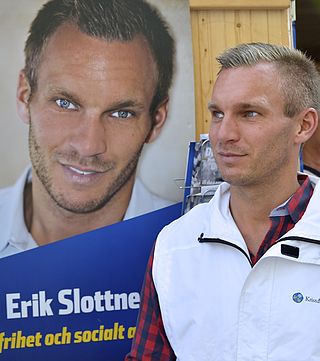
The Minister for Civil Service Affairs, since 2010 called Minister for Public Administration, is a member of the Government of Sweden. The minister for civil service affairs was the head of the Ministry for Civil Service Affairs from 1840 to 1996. It was reintroduced as a minister without portfolio post in 2010. Its tasks includes government procurement and an overall responsibility for municipalities and regions.



















